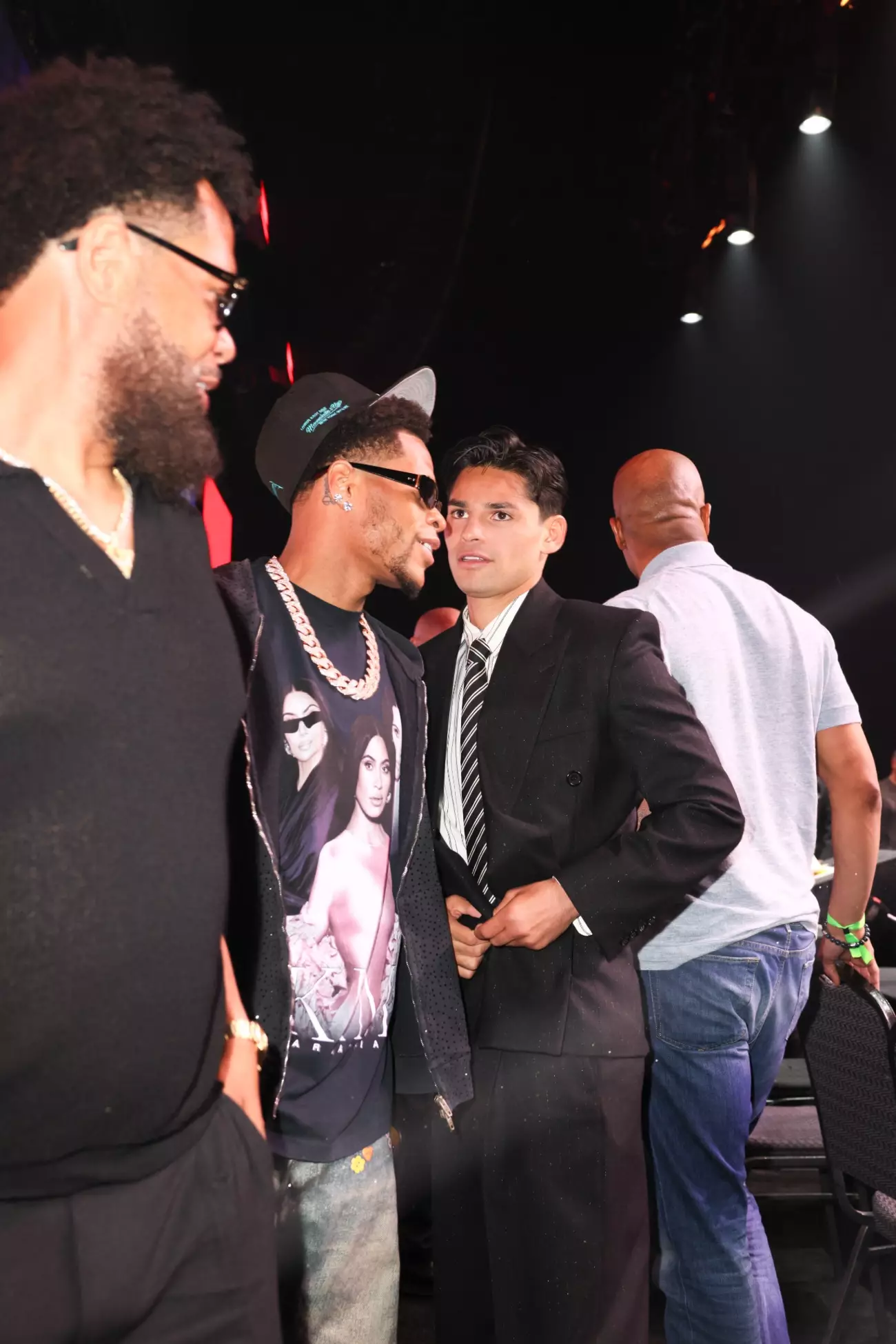Boxing is a sport that thrives on tension—between fighters, promoters, and, occasionally, family. The recent incident involving Devin Haney’s father, Bill Haney, and Ryan Garcia, along with Garcia’s promoter, Oscar De La Hoya, illustrates just how heated these relationships can get. The press conference before the Fatal Fury event in Times Square transformed from a promotional gathering into a battleground for egos, revealing the undercurrents of animosity that often propel the sport forward.
As Teofimo Lopez ignited the confrontation, the atmosphere escalated rapidly, showcasing how easily tempers can flare in a high-stakes environment. De La Hoya’s capacity to confront Bill Haney, a man with considerable stake in his son’s career, highlights the personal nature of these rivalries. One must question the wisdom—and the restraint—shown when emotions run high.
The Risks of Family Ties in Sports
Family dynamics in sports can often be double-edged swords. Bill Haney has stood by his son through thick and thin, managing Devin’s career from its inception. Yet, this unwavering loyalty can come at a cost. Oscar De La Hoya’s insinuation that Bill has potentially tarnished his son’s career through legal disputes and past controversies raises a critical discussion about parents who serve dual roles as coaches or managers.
In sports where the stakes are extraordinarily high, such as boxing, familial ties often blur the lines between support and self-sabotage. De La Hoya’s remark that “his father is ruining his potential” rings alarmingly true for many athletes burdened by their parents’ unmet aspirations. Thus, one must wonder whether Devin should reconsider the relationship that may simultaneously define and limit him.
A Test of Character Under Pressure
De La Hoya’s skepticism towards Devin’s resilience is noteworthy. He points out that after enduring physical setbacks against Ryan Garcia—being knocked down multiple times—the psychological toll on Haney may be more significant than anyone realizes. The upcoming co-feature bout against Jose Ramirez is not just another match for Haney; it is an essential crossroads where the weight of expectations, familial loyalty, and reputational stakes intersect.
The commentary on Haney’s confidence level serves to remind fans and analysts alike that boxing is as much about mental fortitude as it is about physical prowess. A fighter’s mindset can sway the outcome of a match as powerfully as any punch thrown in the ring. De La Hoya’s unfiltered observations serve as a wake-up call, not only for Haney but for all athletes with their eyes set on greatness amidst personal and professional turmoil.
Future Implications on Careers and Rivalries
The looming possibility that a loss against Ramirez could cancel a future rematch with Garcia raises additional stakes. For fighters, losing isn’t merely a loss in the records; it can spiral into career damage, affecting sponsorships, public perception, and, fundamentally, their fighting spirit. Boxing is a sport that thrives on rematches and rivalries, and losing that opportunity can create a vacuum that is difficult to escape.
Moreover, De La Hoya’s overt criticisms could bitterly affect relationships in a sport already rife with betrayal, egos, and deeply buried animosities. Haney’s response—or lack thereof—to these statements might carry as much weight as his performance in the ring. As supporters of the sport, we should be mindful of the implications of these ongoing power struggles, knowing they represent not just individual narratives but also the larger, often tumultuous, ecosystem of professional boxing.
Final Thoughts on Personal and Professional Boundaries
This incident underscores an essential truth about boxing: it is an arena where personal and professional lives collide unpredictably. Family loyalty can provide support, but it can also cloud judgment, compromising effective decision-making. As Devin Haney prepares for his fight against Jose Ramirez, one hopes he will navigate these complex relationships thoughtfully, as the real tests lie not just in the ring but in those who stand with him outside it. The way forward will demand toughness, introspection, and, perhaps most importantly, a re-evaluation of personal dynamics within a highly competitive sport.

